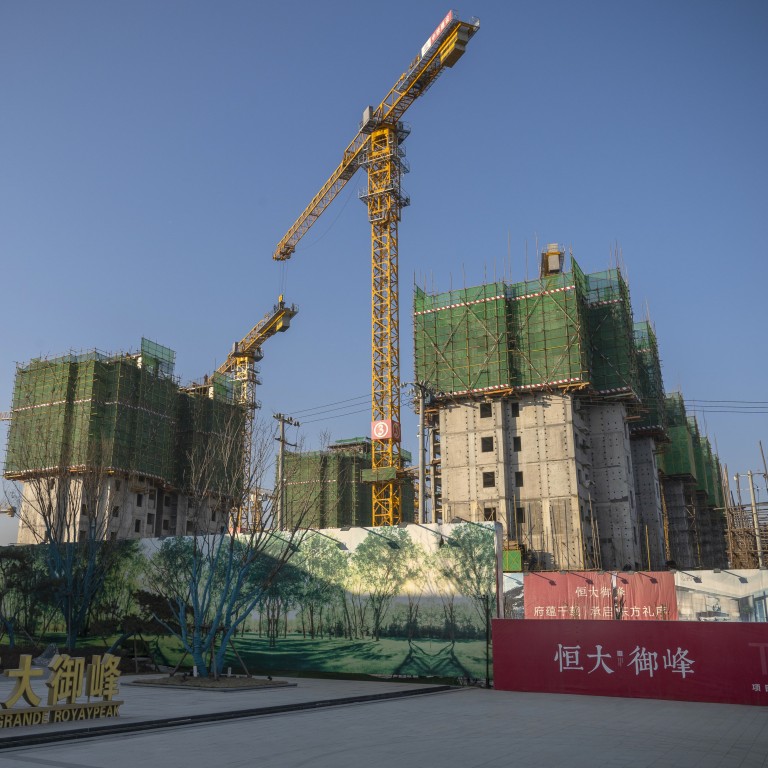
Evergrande, Kaisa and other indebted developers get a break as China’s rate cuts release funds to relieve their cash crunch and mounting debt
- The Hang Seng Mainland Properties Index, which tracks the performance of property developers traded on the Hong Kong stock exchange, rose by as much as 5.2 per cent
- China Evergrande Group, Kaisa Holdings, Sunac China Holdings and other Chinese developers all soared
China’s publicly traded developers soared on the stock market, as the first cut in mortgage rates in two years combined with a government plan to grant them easier access to sales receipts brought much-needed relief to their cash crunch and mounting debt.
The Hang Seng Mainland Properties Index, which tracks the performance of property developers traded on the Hong Kong stock exchange, rose by 4.6 per cent to close at 4,640.74 points.
China cuts mortgage reference rate for first time in nearly 2 years
Sunac China Holdings, one of the country’s most leveraged developers, led the surge, with its shares jumping by 14.6 per cent. Shimao Group Holdings, founded by the developer Hui Wing Mau, advanced 12.1 per cent. Country Garden Group rose 4.4 per cent, while the shares of Chongqing’s Longfor Group increased by 2.4 per cent.
“Monetary loosening is necessary, considering that real estate is a slow variable and it may take time for fiscal expansion to become effective,” CICC analysts led by Huang Wenjing wrote in a report. “The cycle of lowering reserve requirement ratios and interest rates has started, rather than coming to an end.”


“The new rule, if implemented, will be quite positive for the sector in the near term as it could free up a meaningful amount of funds for developers, which could be used to repay some of their short-term debts,” said CGS-CIMB’s property analyst Raymond Cheng, who estimated that US$12 billion in extra funds could be available to 17 major developers including Shimao and Sunac.
Is Evergrande too big to fail?
Shares of China Evergrande Group, teetering on 1.97 trillion yuan in liabilities, rose 4.6 per cent, while Kaisa Group Holdings, also downgraded to restricted default by Fitch last December, surged 13.3 per cent.
Still, any relief could be short-lived as the positive impact may be limited, some analysts said.
“Local governments do not have the incentive to be the first to ease their grip on the escrow accounts owing to concerns about ‘cash flight’ by developers in need of increasing their liquidity,” said Nomura’s chief China economist Lu Ting.

